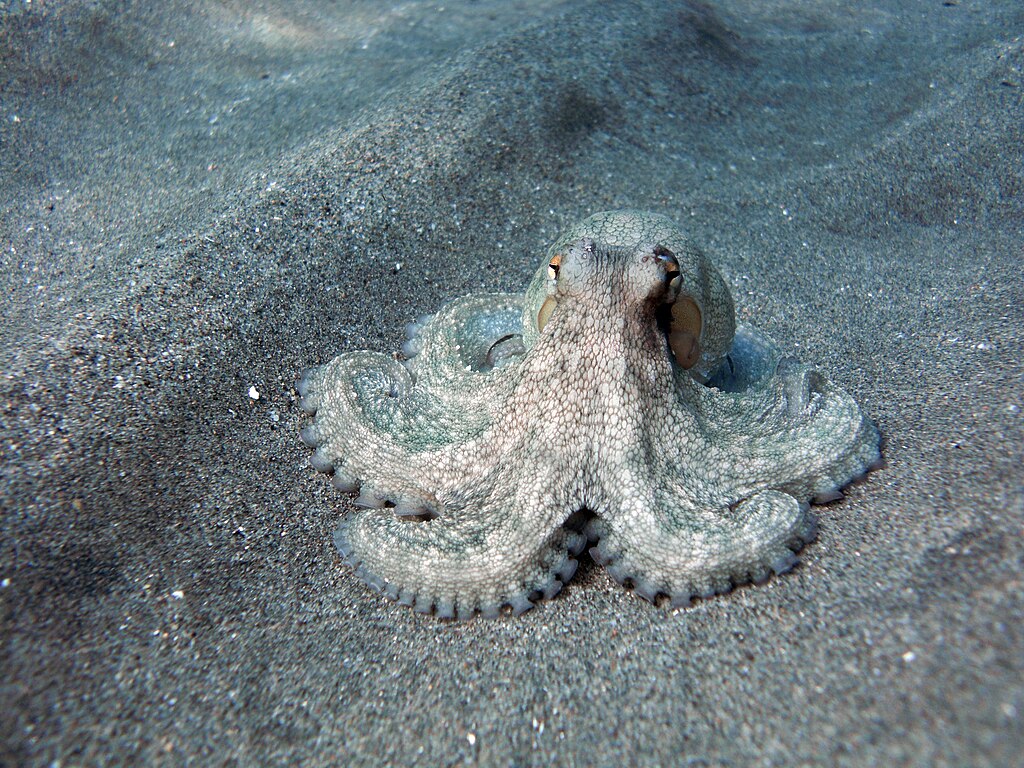
Octopuses rank among the most intriguing and mysterious inhabitants of the ocean. Their alien-like appearance and remarkable intelligence have fascinated humans for centuries, sparking both awe and curiosity about these extraordinary cephalopods. Here, we delve into five of the most intriguing facts about octopuses that highlight their unique place in the natural world.
Existence for Millions of Years
The evolutionary history of octopuses is both long and impressive. The oldest known fossil of an octopus ancestor dates back approximately 330 million years, which means they existed long before the dinosaurs.
An ancient specimen, discovered in Montana, had ten limbs instead of the eight we see in today’s octopuses. This incredible longevity underscores the adaptability and resilience of these creatures, allowing them to survive and evolve through countless environmental changes.
Octopuses Have Three Hearts
One of the most remarkable physiological traits of octopuses is their three hearts. Two of these hearts pump blood through the gills for oxygenation. The third heart circulates the oxygen-rich blood throughout the rest of the body.
Interestingly, the heart that supplies blood to the organs stops beating when the octopus swims, which explains why they prefer crawling to swimming. This unique circulatory system supports their active lifestyles and complex behaviors.
Octopuses Display High Intelligence
Contrary to Aristotle’s ancient claim that octopuses are “stupid,” modern research has shown that they are highly intelligent creatures. Octopuses possess large brains.

They demonstrate complex behaviors, such as solving puzzles, navigating mazes, and playing. Each octopus has a unique personality and has been observed using tools, a rare trait in the animal kingdom.
Octopus Arms Have Independent Minds
The intelligence of these eight-legged creatures extends to their limbs, as two-thirds of their neurons are located in their arms. This decentralized nervous system allows their arms to operate independently, performing tasks such as opening shellfish while the rest of the octopus concentrates on other activities.
Even when severed, their arms can respond to stimuli, showcasing a remarkable level of autonomy and sophistication in their nervous system.
They Have Blue Blood
Unlike most animals, octopuses have blue blood due to the presence of hemocyanin, a copper-based molecule that transports oxygen. Hemocyanin outperforms hemoglobin in transporting oxygen, especially in cold, low-oxygen environments like the deep ocean.
This adaptation allows these animals to thrive in their often harsh underwater habitats. However, this adaptation also makes them sensitive to changes in ocean acidity, a concern that grows more pressing as climate change progresses.
One of Nature’s Marvels
Octopuses are truly one of nature’s marvels, boasting an ancient lineage, complex circulatory and nervous systems, and remarkable intelligence. These traits make them fascinating study subjects and emphasize their importance in marine ecosystems.
As our understanding of these remarkable animals deepens, it becomes increasingly crucial to prioritize their conservation and safeguard the diverse environments they call home. From their unique blood to their exceptional brains, octopuses remind us of the diversity of life on our planet.